Victoria’s finances are dire. The state has the nation’s lowest credit rating and the highest per capita debt.
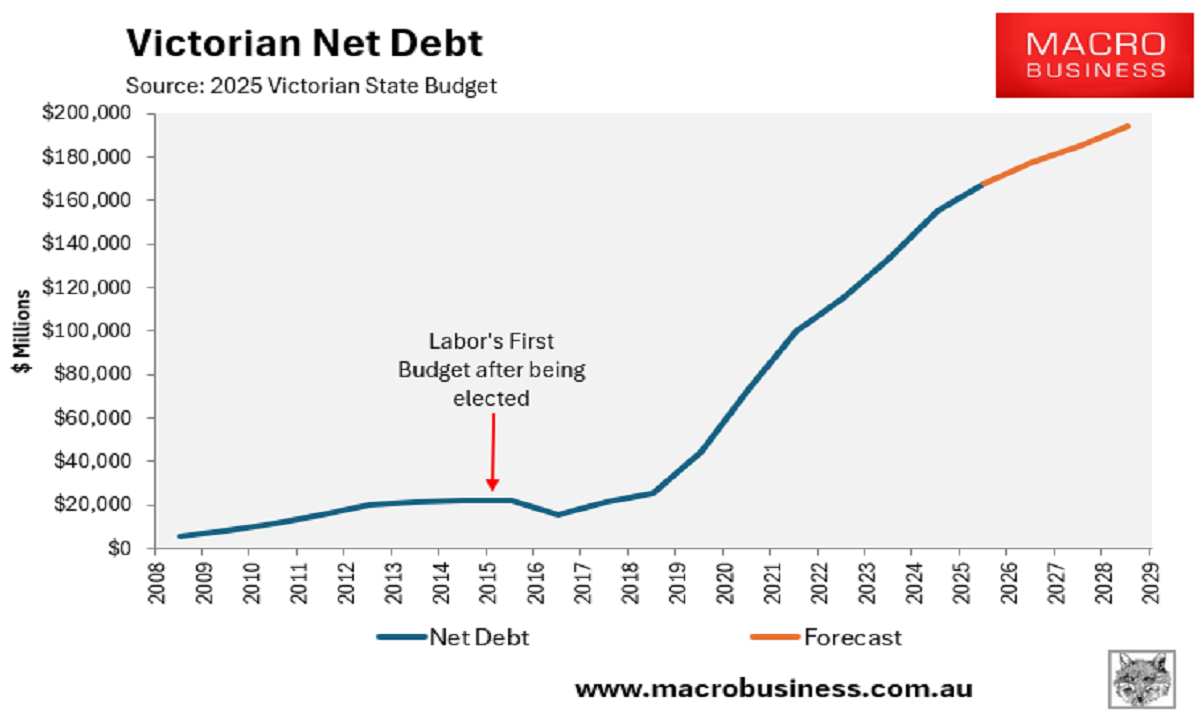
The major rating agencies have warned that unless Victoria gets its debt under control, it will face more ratings downgrades.
Interest repayments on the state’s debt, already forecast to reach $10.6 billion annually by FY 2029, would increase with any downgrade.
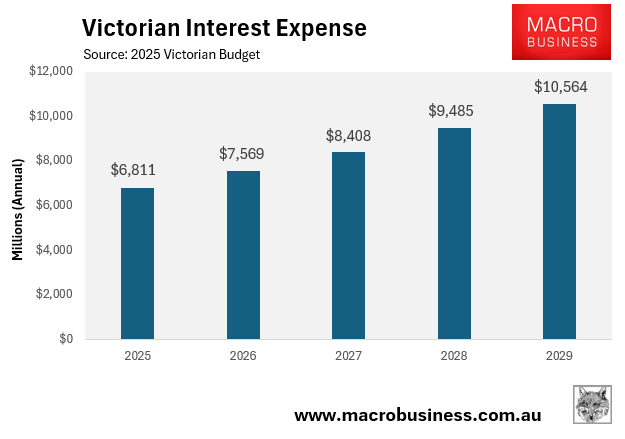
Bureaucratic waste is drowning Victorians.
Victoria’s wage bill was $19.5 billion in 2014-15. The most recent state budget projects that wage costs will reach roughly $44 billion by 2028-29.
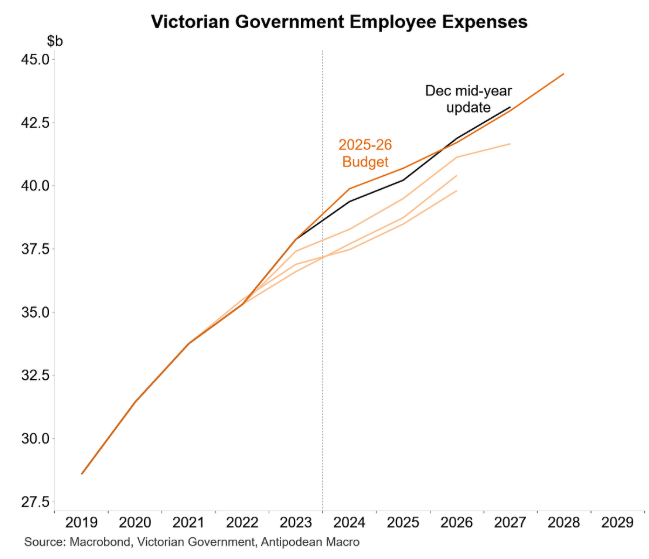
The massive blowout in bureaucratic headcount is behind Victoria’s gargantuan wage bill.
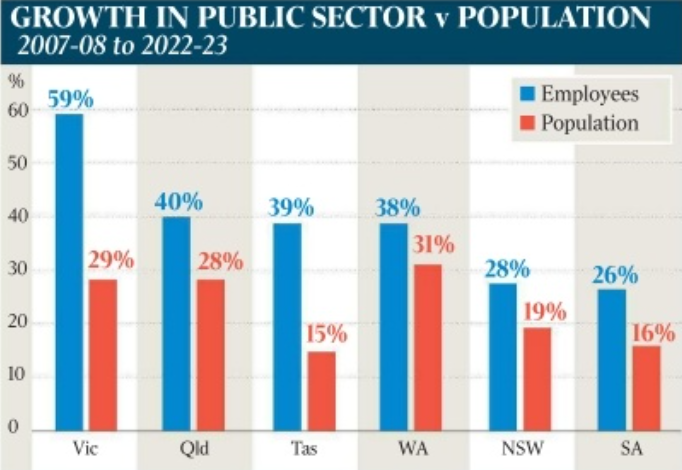
Source: The Australian
Despite Victoria’s dire financial situation, the state government has become the first Australian state to formally table a Treaty with Indigenous Australians in state parliament.
The treaty legislation introduces several reforms, including the wider use of traditional names for natural parks and a re-examination of the school curriculum, and a formal apology by the state government.
The legislation proposes the permanent establishment of the First People’s Assembly under a new corporation called Gellung Warl, with annual funding of $70 million a year from taxpayers.
Gellung Warl will also include two extra bodies to hold the government to account and to continue the truth-telling work of the Yoorrook Justice Commission.
Gellung Warl will also oversee the development of training program and workplace guidelines to create a “culturally capable” workforce in the public sector.
This includes developing training program and establishing key performance indicators (KPIs) to assess executives’ cultural competency.
While Gellung Warl will not have the authority to nominate individual members to government boards, it will be able to reject candidates who lack the necessary cultural heritage experience.
One of the most contentious provisions of the agreement is the provision that gives Gellung Warl the authority to facilitate individual treaties with Victorian Indigenous communities and the state government.
This lays the groundwork for dozens of individual accords, some of which may include repatriations paid by Victorian taxpayers to indigenous communities.
James Campbell at the Herald-Sun aptly summarised the Treaty as follows:
Make no mistake, the explicit aim of this exercise is to put the interests of the 65,000 Victorians who claim Indigenous descent at the centre of the governance of a state of 7m people…
Henceforth the First People’s Assembly – to be renamed Gellung Warl – is to be given “a dedicated, named room with the Parliament of Victoria where “it can carry out its functions” and its members and staff are to be given access to the building.
Two years ago Anthony Albanese was at pains to say there was no way his Voice would be a third chamber of parliament.
How can Jacinta Allan make this claim?
Victorians voted 54.15% against The Voice referendum. Therefore, why has the Victorian government pursued such a treaty?
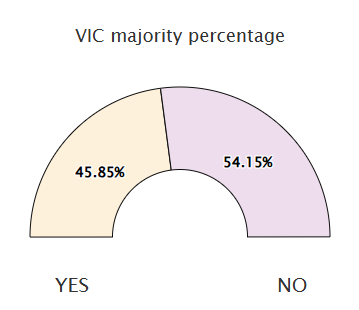
Voice referendum results
Victorians are already the highest taxed residents in Australia, and this treaty will make the situation worse by creating a new layer of bureaucracy within the government as well as a special privileged group that will likely receive extra subsidies, tax breaks, and other perks.
Meanwhile, Victoria’s roads, public transport, schools, hospitals, and public housing will continue to be underfunded.
The whole fiasco reminds me of Animal Farm: all Victorians are equal. But some are more equal than others.

